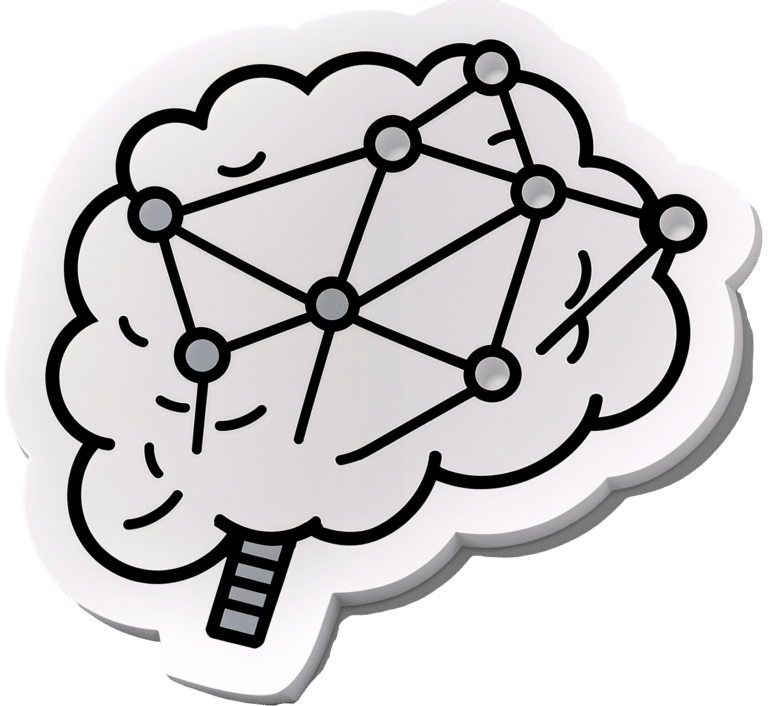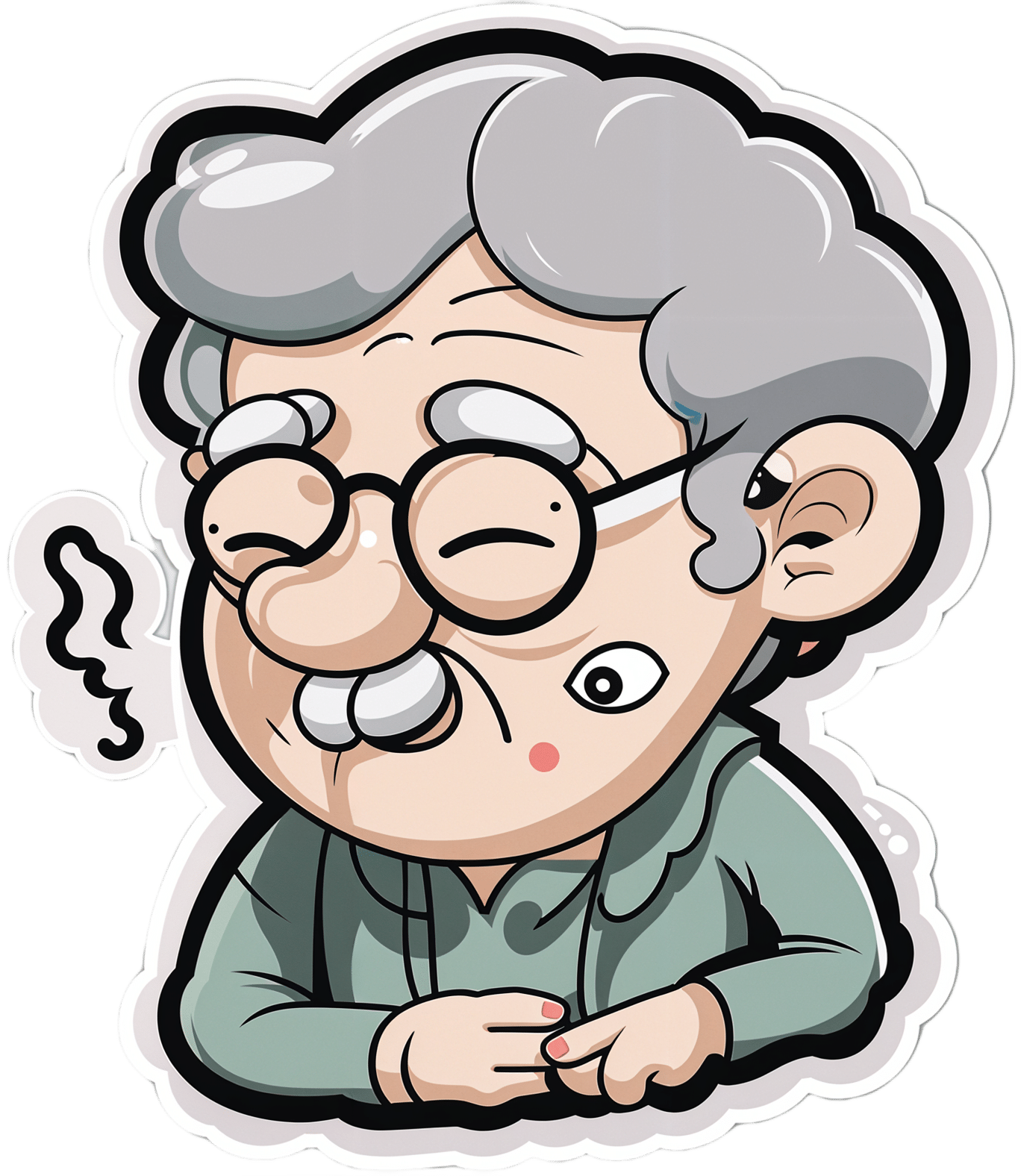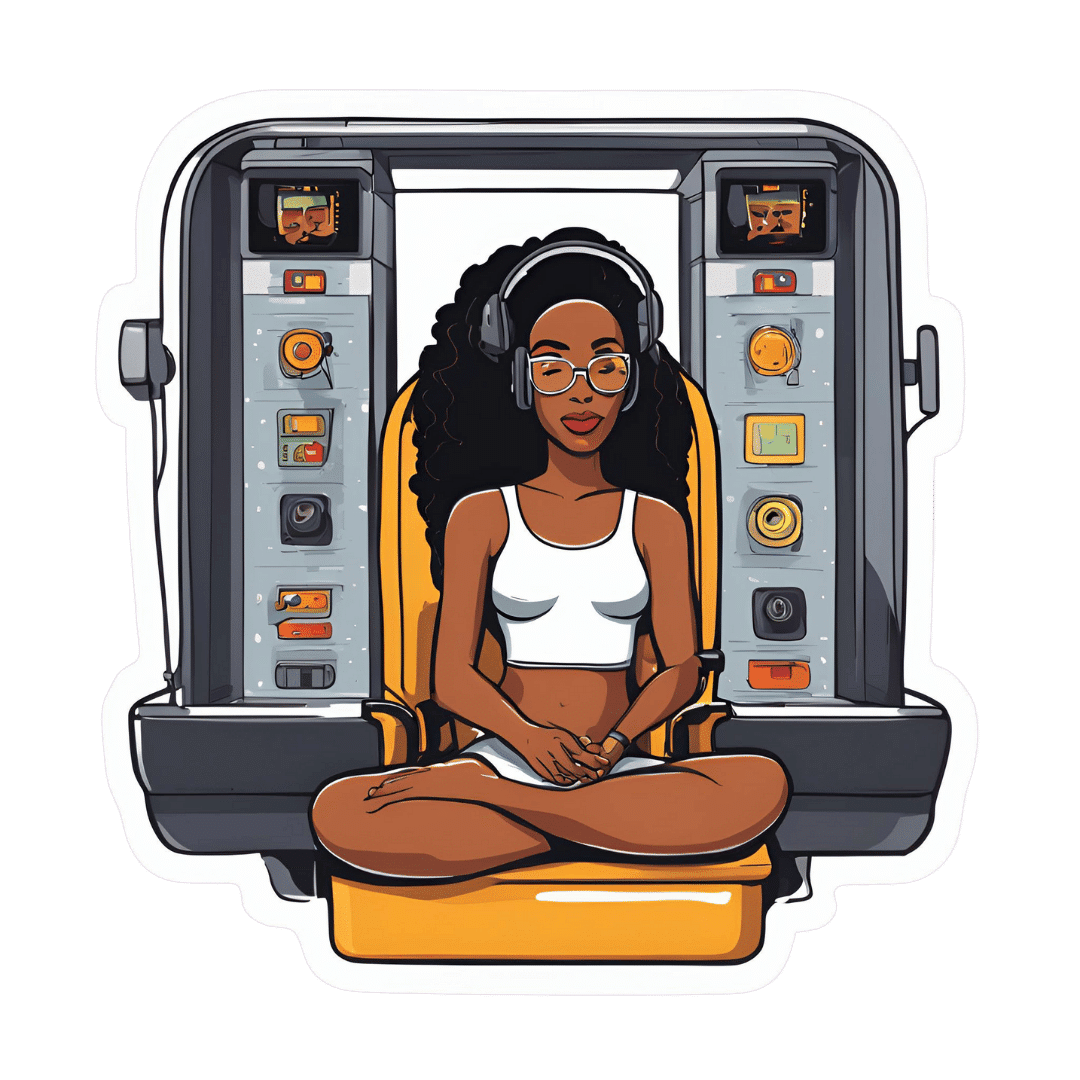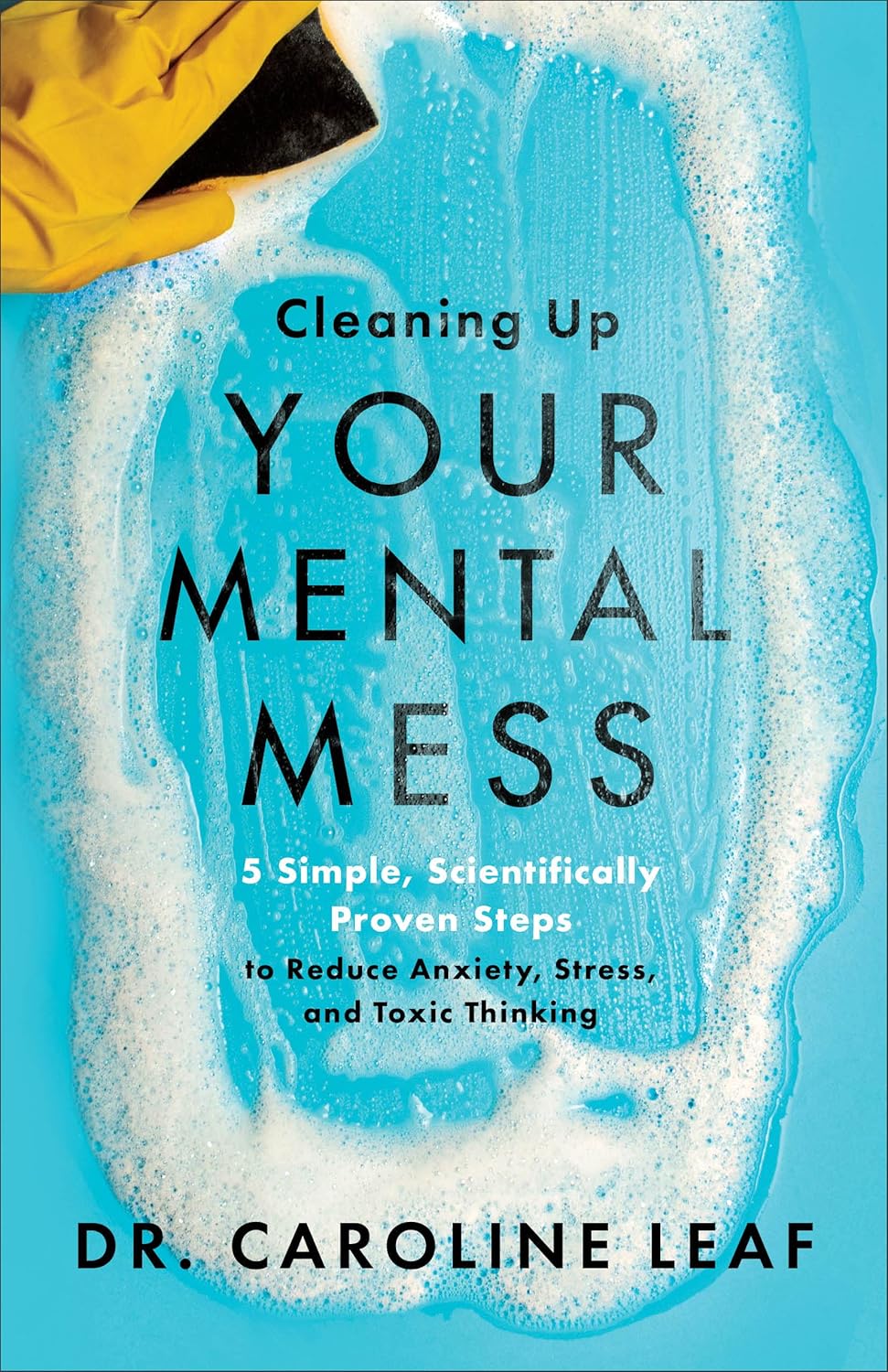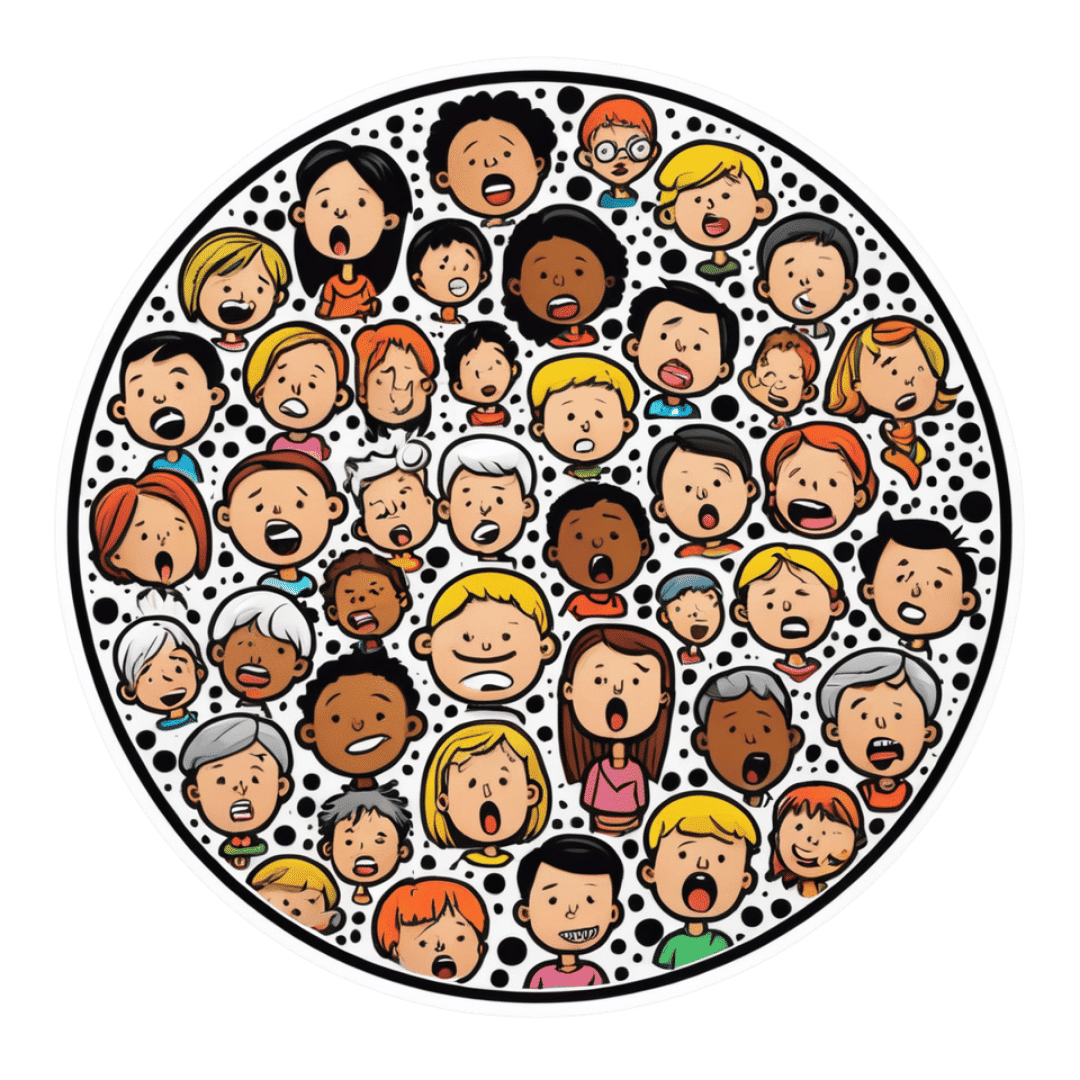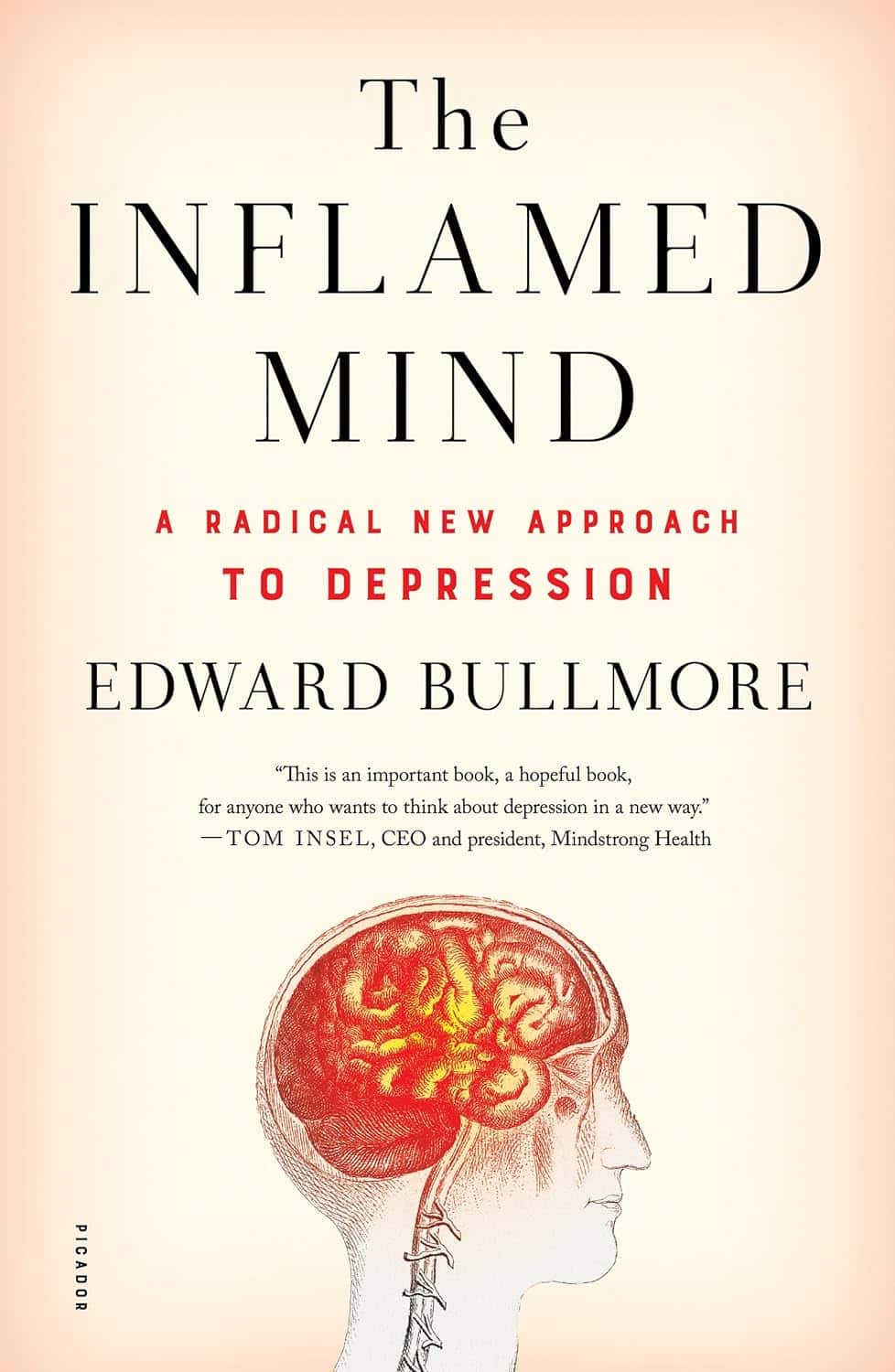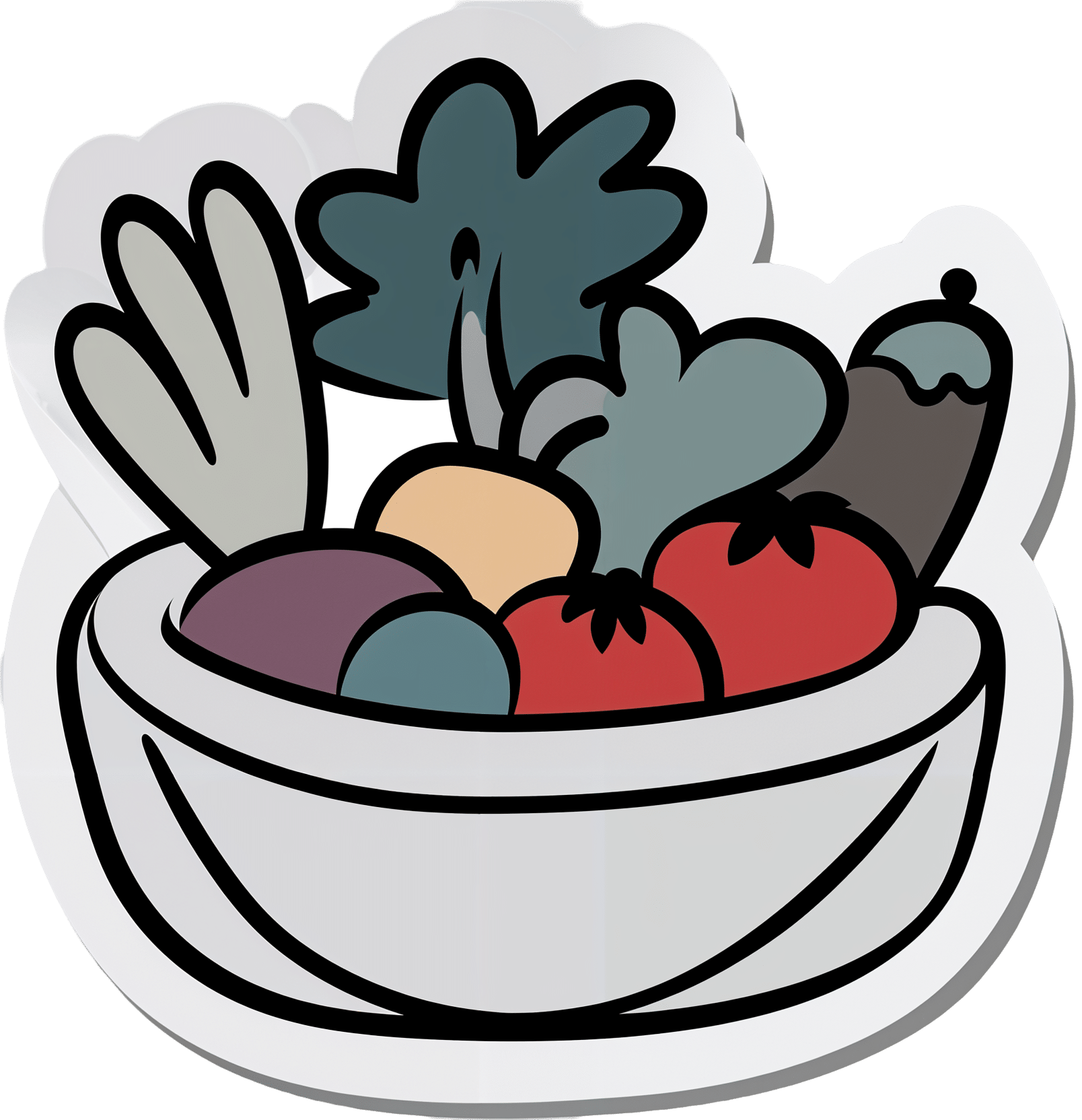
Three Critical Kitchen Prescriptions
10almonds is reader-supported. We may, at no cost to you, receive a portion of sales if you purchase a product through a link in this article.
Three Critical Kitchen Prescriptions

This is Dr. Saliha Mahmood-Ahmed. She’s a medical doctor—specifically, a gastroenterologist. She’s also a chef, and winner of the BBC’s MasterChef competition. So, from her gastroenterology day-job and her culinary calling, she has some expert insights to share on eating well!
❝Food and medicine are inextricably linked to one another, and it is an honour to be a doctor who specialises in digestive health and can both cook, and teach others to cook❞
~ Dr. Saliha Mahmood-Ahmed, after winning MasterChef and being asked if she’d quit medicine to be a full-time chef
Dr. Mahmood-Ahmed’s 3 “Kitchen Prescriptions”
They are:
- Cook, cook, cook
- Feed your gut bugs
- Do not diet
Let’s take a look at each of those…
Cook, cook, cook
We’re the only species on Earth that cooks food. An easy knee-jerk response might be to think maybe we shouldn’t, then, but… We’ve been doing it for at least 30,000 years, which is about 1,500 generations, while a mere 100 generations is generally sufficient for small evolutionary changes. So, we’ve evolved this way now.
More importantly in this context: we, ourselves, should cook our own food, at least per household.
Not ready meals; we haven’t evolved for those (yet! Give it another few hundred generations maybe)
Feed your gut bugs
The friendly ones. Enjoy prebiotics, probiotics, and plenty of fiber—and then be mindful of what else you do or don’t eat. Feeding the friendly bacteria while starving the unfriendly ones may seem like a tricky task, but it actually can be quite easily understood and implemented. We did a main feature about this a few weeks ago:
Making Friends With Your Gut (You Can Thank Us Later)
Do not diet
Dr. Mahmood-Ahmed is a strong critic of calorie-counting as a weight-loss strategy:
Rather than focusing on the number of calories consumed, try focusing on introducing enough variety of food into your daily diet, and on fostering good microbial diversity within your gut.
It’s a conceptual shift from restrictive weight loss, to prescriptive adding of things to one’s diet, with fostering diversity of microbiota as a top priority.
This, too, she recommends be undertaken gently, though—making small, piecemeal, but sustainable improvements. Nobody can reasonably incorporate, say, 30 new fruits and vegetables into one’s diet in a week; it’s unrealistic, and more importantly, it’s unsustainable.
Instead, consider just adding one new fruit or vegetable per shopping trip!
Don’t Forget…
Did you arrive here from our newsletter? Don’t forget to return to the email to continue learning!
Recommended
Learn to Age Gracefully
Join the 98k+ American women taking control of their health & aging with our 100% free (and fun!) daily emails:
-
Coughing/Wheezing After Dinner?
10almonds is reader-supported. We may, at no cost to you, receive a portion of sales if you purchase a product through a link in this article.
The After-Dinner Activities You Don’t Want
A quick note first: our usual medical/legal disclaimer applies here, and we are not here to diagnose you or treat you; we are not doctors, let alone your doctors. Do see yours if you have any reason to believe there may be cause for concern.
Coughing and/or wheezing after eating is more common the younger or older someone is. Lest that seem contradictory: it’s a U-shaped bell-curve.
It can happen at any age and for any of a number of reasons, but there are patterns to the distribution:
Mostly affects younger people:
Allergies, asthma
Young people are less likely to have a body that’s fully adapted to all foods yet, and asthma can be triggered by certain foods (for example sulfites, a common preservative additive):
Adverse reactions to the sulphite additives
Foods/drinks that commonly contain sulfites include soft drinks, wines and beers, and dried fruit
As for the allergies side of things, you probably know the usual list of allergens to watch out for, e.g: dairy, fish, crustaceans, eggs, soy, wheat, nuts.
However, that’s far from an exhaustive list, so it’s good to see an allergist if you suspect it may be an allergic reaction.
Affects young and old people equally:
Again, there’s a dip in the middle where this doesn’t tend to affect younger adults so much, but for young and old people:
Dysphagia (difficulty swallowing)
For children, this can be a case of not having fully got used to eating yet if very small, and when growing, can be a case of “this body is constantly changing and that makes things difficult”.
For older people, this can can come from a variety of reasons, but common culprits include neurological disorders (including stroke and/or dementia), or a change in saliva quality and quantity—a side-effect of many medications:
Hyposalivation in Elderly Patients
(particularly useful in the article above is the table of drugs that are associated with this problem, and the various ways they may affect it)
Managing this may be different depending on what is causing your dysphagia (as it could be anything from antidepressants to cancer), so this is definitely one to see your doctor about. For some pointers, though:
NHS Inform | Dysphagia (swallowing problems)
Affects older people more:
Gastroesophagal reflux disease (GERD)
This is a kind of acid reflux, but chronic, and often with a slightly different set of symptoms.
GERD has no known cure once established, but its symptoms can be managed (or avoided in the first place) by:
- Healthy eating (Mediterranean diet is, as usual, great)
- Weight loss (if and only if obese)
- Avoiding trigger foods
- Eating smaller meals
- Practicing mindful eating
- Staying upright for 3–4 hours after eating
And of course, don’t smoke, and ideally don’t drink alcohol.
You can read more about this (and the different ways it can go from there), here:
NICE | Gastro-oesophageal reflux disease
Note: this above page refers to it as “GORD”, because of the British English spelling of “oesophagus” rather than “esophagus”. It’s the exact same organ and condition, just a different spelling.
Take care!
Share This Post
-
Does This New Machine Cure Depression?
10almonds is reader-supported. We may, at no cost to you, receive a portion of sales if you purchase a product through a link in this article.
Let us first talk briefly about the slightly older tech that this may replace, transcranial magnetic stimulation (TMS).
TMS involves electromagnetic fields to stimulate the left half of the brain and inhibit the right half of the brain. It sounds like something from the late 19th century—“cure your melancholy with the mystical power of magnetism”—but the thing is, it works:
The main barriers to its use are that the machine itself is expensive, and it has to be done in a clinic by a trained clinician. Which, if it were treating one’s heart, say, would not be so much of an issue, but when treating depression, there is a problem that depressed people are not the most likely to commit to (and follow through with) going somewhere probably out-of-town regularly to get a treatment, when merely getting out of the door was already a challenge and motivation is thin on the ground to start with.
Thus, antidepressant medications are more often the go-to for cost-effectiveness and adherence. Of course, some will work better than others for different people, and some may not work at all in the case of what is generally called “treatment-resistant depression”:
Antidepressants: Personalization Is Key!
Transcranial stimulation… At home?
Move over transcranial magnetic stimulation; it’s time for transcranial direct-current stimulation (tDCS).
First, what it’s not: electroconvulsive therapy (ECT). Rather, it uses a very low current.
What it is: a small and portable headset (as opposed to the big machine to go sit in for TMS) that one can use at home. Here’s an example product on Amazon, though there are more stylish versions around, this is the same basic technology.
In a recent study, 45% of those who received treatment with this device experienced remission in 10 weeks, significantly beating placebo (bearing in mind that placebo effect is strongest when it comes to invisible ailments such as depression).
See also: How To Leverage Placebo Effect For Yourself ← this explains more about how the placebo effect works, to the extent that it can even be an adjuvant tool to augment “real” therapies
And as for the study, here it is:
…which rather cuts through the “depressed people don’t make it to the clinic consistently, if at all” problem. Of course, it still requires adherence to its use at home, for example three 30-minute sessions per week, but honestly, “lie/sit still” is likely within the abilities of the majority of depressed people. However…
Important note: you remember we said “in 10 weeks”? That may be critical, because shorter studies (e.g. 6 weeks) have previously returned without such glowing results:
Home-Use Transcranial Direct Current Stimulation for the Treatment of a Major Depressive Episode
This means that if you get this tech for yourself or a loved one, it’ll be necessary to persist for likely 10 weeks, certainly more than 6 weeks, and not abandon it after a few sessions when it hasn’t been life-changing yet. And that may be more of a challenge for a depressed person, so likely an “accountability buddy” of some kind is in order (partner, close friend, etc) to help ensure adherence and generally bug you/them into doing it consistently.
And then, of course, you/they might still be in the 55% of people for whom it didn’t work. And that does suck, but random antidepressant medications (i.e., not personalized) don’t fare much better, statistically.
Want something else against depression meanwhile?
Here are some strategies that not only can significantly help, but also are tailored to be actually doable while depressed:
The Mental Health First-Aid You’ll Hopefully Never Need ← written by your writer who has previously suffered extensively from depression and knows what it is like
Take care!
Share This Post
-
Resveratrol & Healthy Aging
10almonds is reader-supported. We may, at no cost to you, receive a portion of sales if you purchase a product through a link in this article.
Resveratrol & Healthy Aging
Resveratrol is the compound found in red grapes, and thus in red wine, that have resulted in red wine being sometimes touted as a heart-healthy drink.
However, at the levels contained in red wine, you’d need to drink 100–1000 glasses of wine per day (depending on the wine) to get the dose of resveratrol that was associated with heart health benefits in mouse studies.
Which also means: if you are not a mouse, you might need to drink even more than that!
Further reading: can we drink to good health?
Resveratrol supplementation
Happily, resveratrol supplements exist. But what does resveratrol do?
It lowers blood pressure:
Effect of resveratrol on blood pressure: a meta-analysis of randomized controlled trials
It improves blood lipid levels:
It improves insulin sensitivity:
It has neuroprotective effects too:
Resveratrol promotes clearance of Alzheimer’s disease amyloid-beta peptides
Is it safe?
For most people, it is generally recognized as safe. However, if you are on blood-thinners or otherwise have a bleeding disorder, you might want to skip it:
Antiplatelet activity of synthetic and natural resveratrol in red wine
You also might want to check with your pharmacist/doctor, if you’re on blood pressure meds, anxiety meds, or immunosuppressants, as it can increase the amount of these drugs that will then stay in your system:
Resveratrol modulates drug- and carcinogen-metabolizing enzymes in a healthy volunteer study
And as ever, of course, if unsure just check with your pharmacist/doctor, to be on the safe side.
Where to get it?
We don’t sell it, but here’s an example product on Amazon for your convenience
Enjoy!
Share This Post
Related Posts
-
Cleaning Up Your Mental Mess – by Dr. Caroline Leaf
10almonds is reader-supported. We may, at no cost to you, receive a portion of sales if you purchase a product through a link in this article.
First of all, what mental mess is this? Well, that depends on you, but common items include:
- Anxiety
- Depression
- Stress
- Trauma
Dr. Caroline Leaf also includes the more nebulous item “toxic thoughts”, but this is mostly a catch-all term.
Given that it says “5 simple scientifically proven steps”, it would be fair if you are wondering:
“Is this going to be just basic CBT stuff?”
And… First, let’s not knock basic CBT stuff. It’s not a panacea, but it’s a great tool for a lot of things. However… Also, no, this book is not about just basic CBT stuff.
In fact, this book’s methods are presented in such a novel way that this reviewer was taken aback by how unlike it was to anything she’d read before.
And, it’s not that the components themselves are new—it’s just that they’re put together differently, in a much more organized comprehensive and systematic way, so that a lot less stuff falls through the cracks (a common problem with standalone psychological tools and techniques).
Bottom line: if you buy one mental health self-help book this year, we recommend that it be this one
Click here to check out Cleaning Up Your Mental Mess, and take a load off your mind!
Don’t Forget…
Did you arrive here from our newsletter? Don’t forget to return to the email to continue learning!
Learn to Age Gracefully
Join the 98k+ American women taking control of their health & aging with our 100% free (and fun!) daily emails:
-
Measles, Memory, & Mouths
10almonds is reader-supported. We may, at no cost to you, receive a portion of sales if you purchase a product through a link in this article.
Three important items from this week’s health news:
It’s not about obesity
This news is based on a rodent study, so we don’t know for sure if it’s applicable to humans yet, but there’s no reason to expect that it won’t be.
The crux of the matter is that while it’s long been assumed that when it comes to diet and cognitive decline, obesity is the main driver of problems, it turns out that rats fed a high fat diet—for three days or three months—did much worse in memory tests.
This was observed in older rats, but not in younger ones—the researchers hypothesized that the younger rats benefited from their ability to activate compensatory anti-inflammatory responses, which the older rats could not.
Notably, the three-day window of high-fat diet wasn’t sufficient to cause any metabolic problems or obesity yet, but markers of neuroinflammation skyrocketed immediately, and memory test scores declined at the same rate:
Read in full: High-fat diet could cause memory problems in older adults after just a few days
Related: Can Saturated Fats Be Healthy?
Vax, Lies, & Mortality Rates
Measles is making a comeback in the US.
100 cases were reported in Gaines county, TX, recently, with 1 death there so far (an unvaccinated child). And of course, it’s spreading; in the neighboring Lea county, NM, they now have an outbreak of 30 confirmed cases, and 1 death there so far (an unvaccinated adult).
This comes with the rise of the anti-vax movement which comes with a lot of misleading rhetoric (and some things that are simply factually incorrect), and an increase in “measles parties” whereby children are deliberately exposed to measles in order to “get it out of the way” and confer later immunity. That technically does work if everyone survives, but the downside is your child may die:
Read in full: New Mexico reports 30 measles cases a day after second US death in decade
Related: 4 Ways Vaccine Skeptics Mislead You on Measles and More
What your gums say about your hormones
Times of hormonal change (so, including menopause) can show in one’s gums,
❝Recent research shows that 84% of women over 50 did not know that menopause could affect their oral health; 70% of menopausal women reported at least one new oral health symptom (like dry mouth or sensitive gums), yet only 2% had discussed these issues with their dentist.❞
Because gum disease can progress painlessly for a long while, it’s very important to stay on top of any changes, and look for the cause (enlisting the help of your doctor and/or dentist), lest you find yourself very far into periodontal disease when it could have been stopped and reversed much more easily before getting that bad.
Different life stages’ hormonal changes have different effects; the article we’ll link below also list puberty, menstrual variations, and pregnancy, but for brevity we’ll just quote what they say about menopause:
❝Menopause: the hormonal changes of menopause—primarily the drop in estrogen—can lead to oral health issues. Many menopausal women experience dry mouth, which increases the risk of cavities and gum disease, since saliva helps protect teeth. Gums may also recede or become more sensitive, and some women feel burning sensations in the mouth or changes in taste.❞
As for the rest…
Read in full: Gum health: A key indicator of women’s overall well-being
Related: How To Regrow Receding Gums
Take care!
Don’t Forget…
Did you arrive here from our newsletter? Don’t forget to return to the email to continue learning!
Learn to Age Gracefully
Join the 98k+ American women taking control of their health & aging with our 100% free (and fun!) daily emails:
-
The Inflamed Mind – by Dr. Edward Bullmore
10almonds is reader-supported. We may, at no cost to you, receive a portion of sales if you purchase a product through a link in this article.
Firstly, let’s note that this book was published in 2018, so the “radical new” approach is more like “tried and tested and validated” now.
Of course, inflammation in the brain is also linked to Alzheimer’s, Parkinson’s, and other neurodegenerative disorders, but that’s not the main topic here.
Dr. Bullmore, a medical doctor, psychiatrist, and neuroscientist with half the alphabet after his name, knows his stuff. We don’t usually include author bio information here, but it’s also relevant that he has published more than 500 scientific papers and is one of the most highly cited scientists worldwide in neuroscience and psychiatry.
What he explores in this book, with a lot of hard science made clear for the lay reader, is the mechanisms of action of depression treatments that aren’t just SSRIs, and why anti-inflammatory approaches can work for people with “treatment-resistant depression”.
The book was also quite prescient in its various declarations of things he expects to happen in the field in the next five years, because they’ve happened now, five years later.
Bottom line: if you’d like to understand how the mind and body affect each other in the cases of inflammation and depression, with a view to lessening either or both of those things, this is a book for you.
Click here to check out The Inflamed Mind, and take good care of yours!
Don’t Forget…
Did you arrive here from our newsletter? Don’t forget to return to the email to continue learning!
Learn to Age Gracefully
Join the 98k+ American women taking control of their health & aging with our 100% free (and fun!) daily emails:

